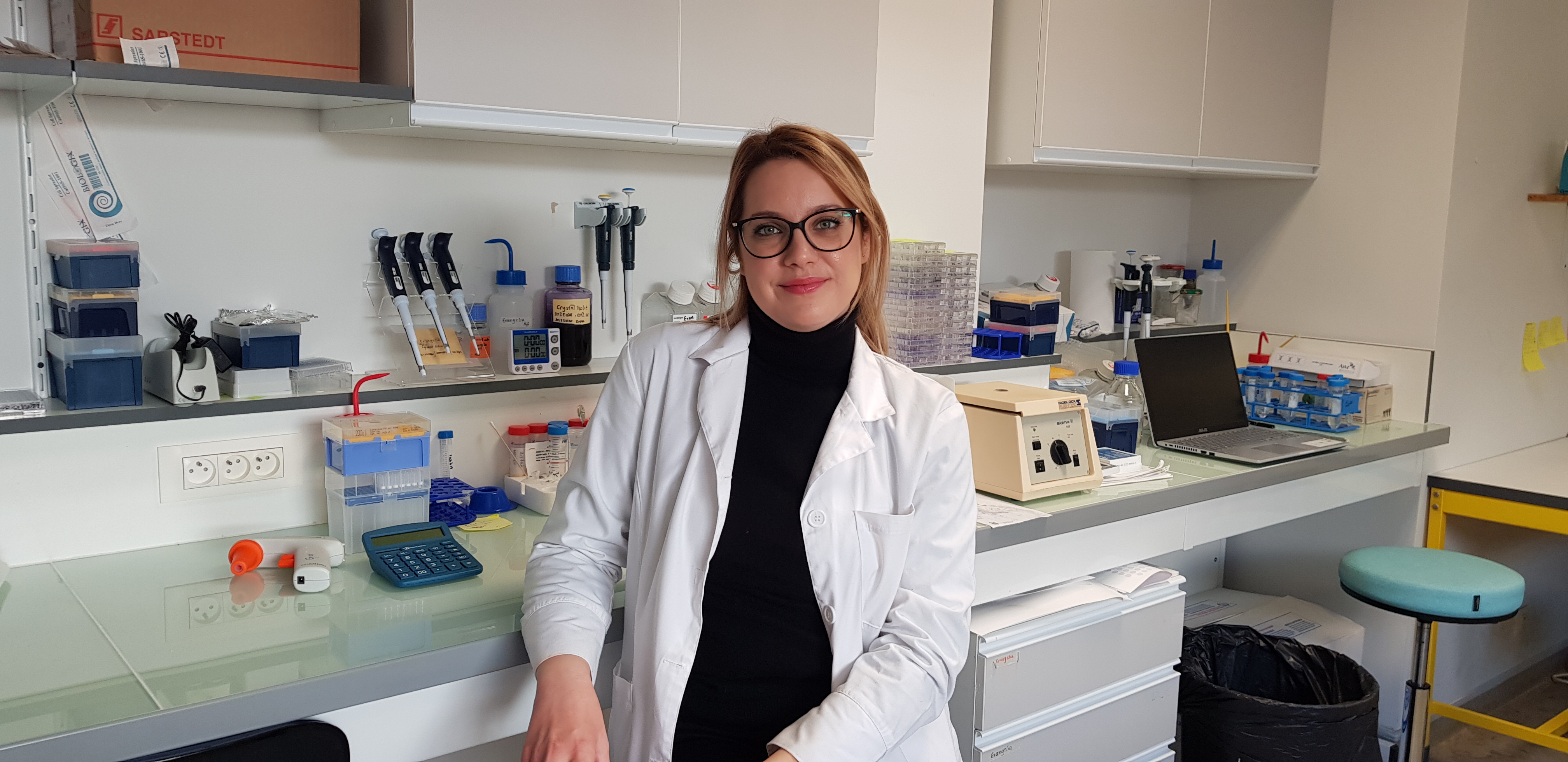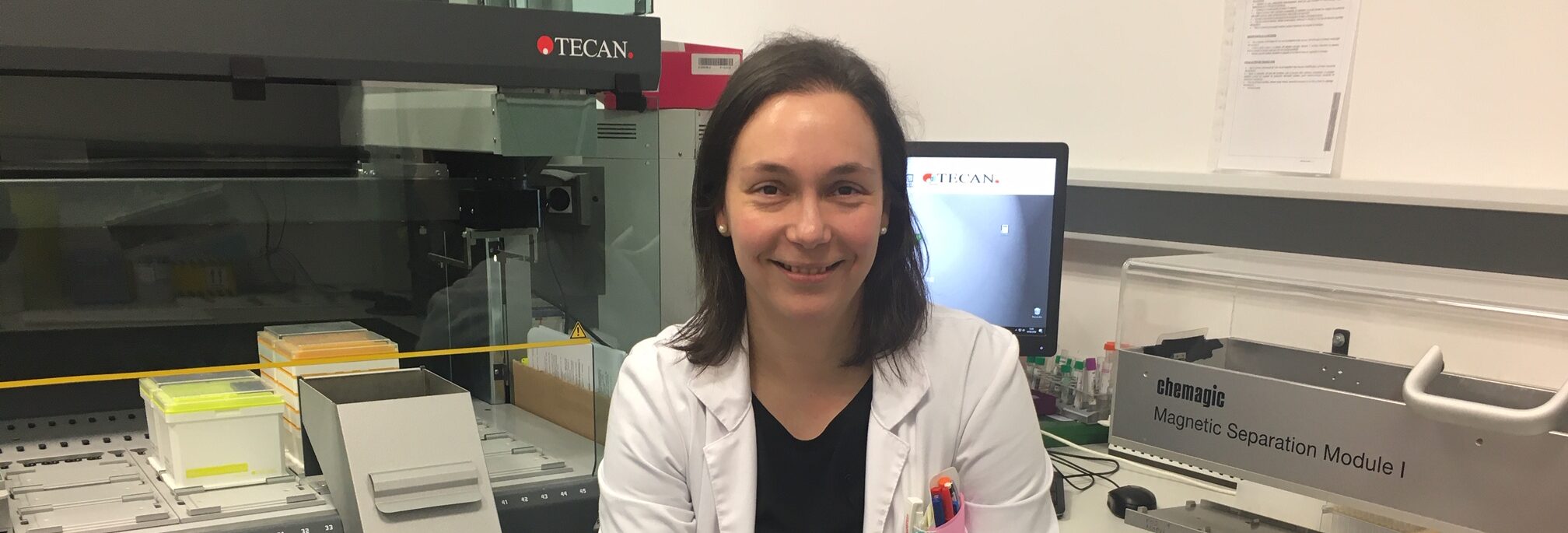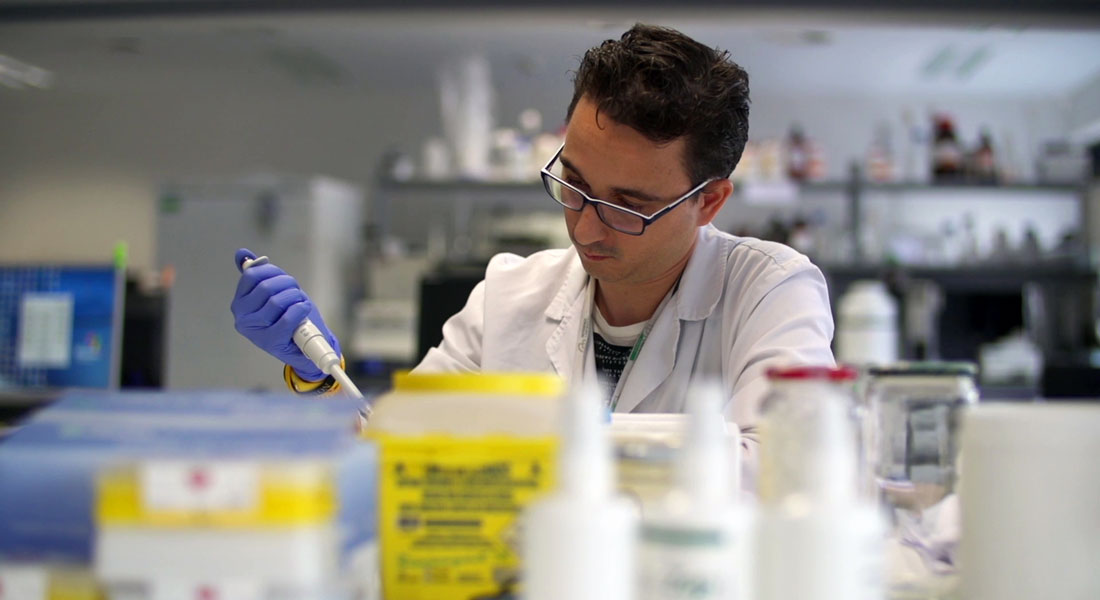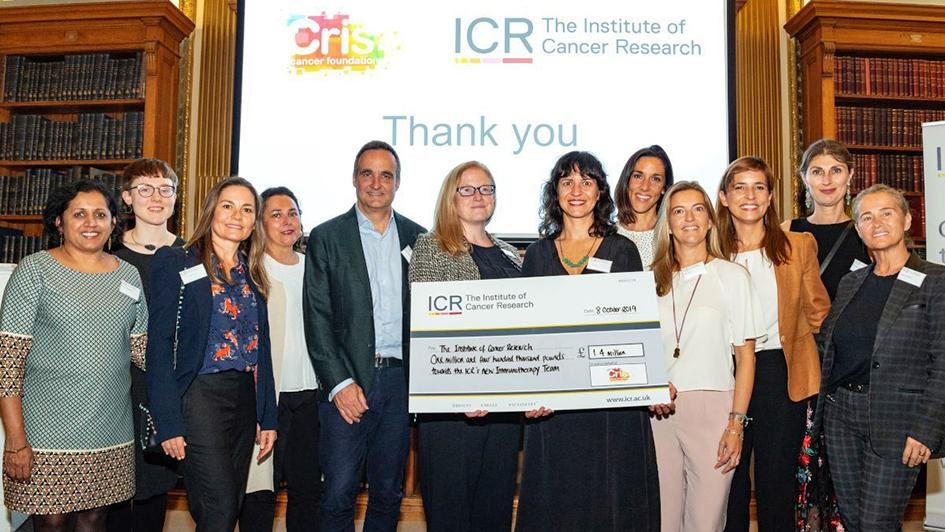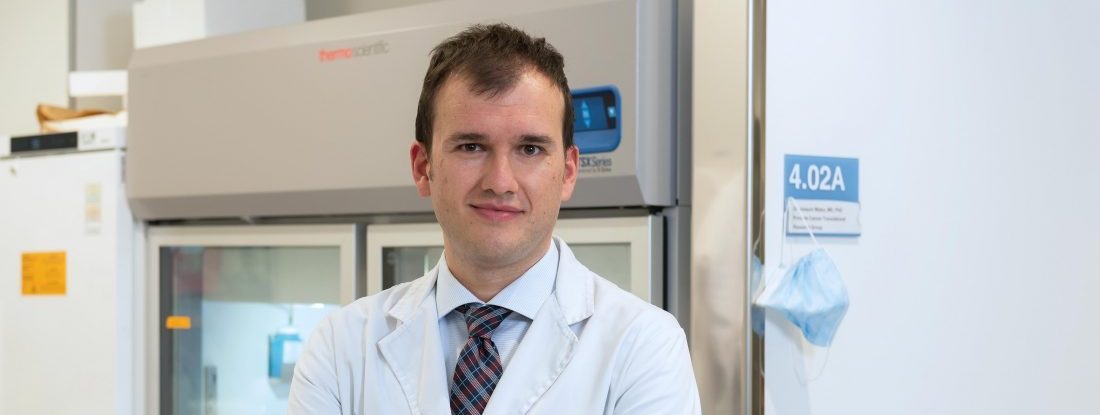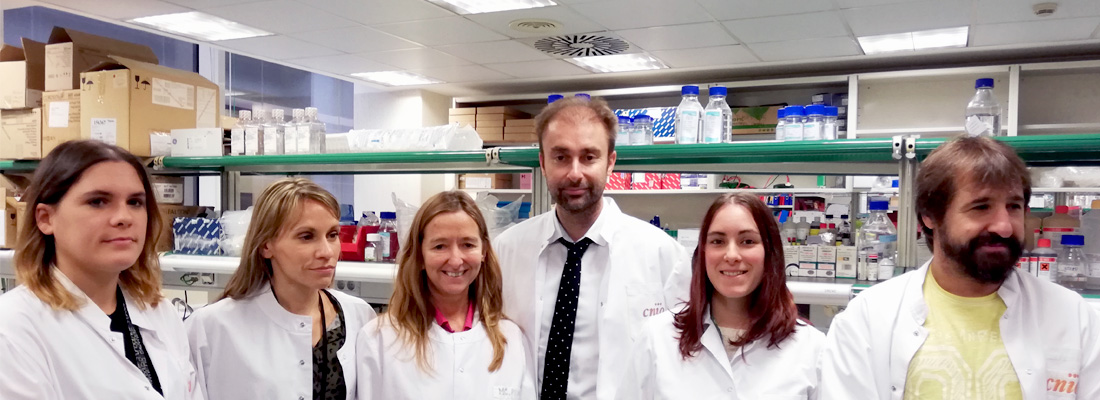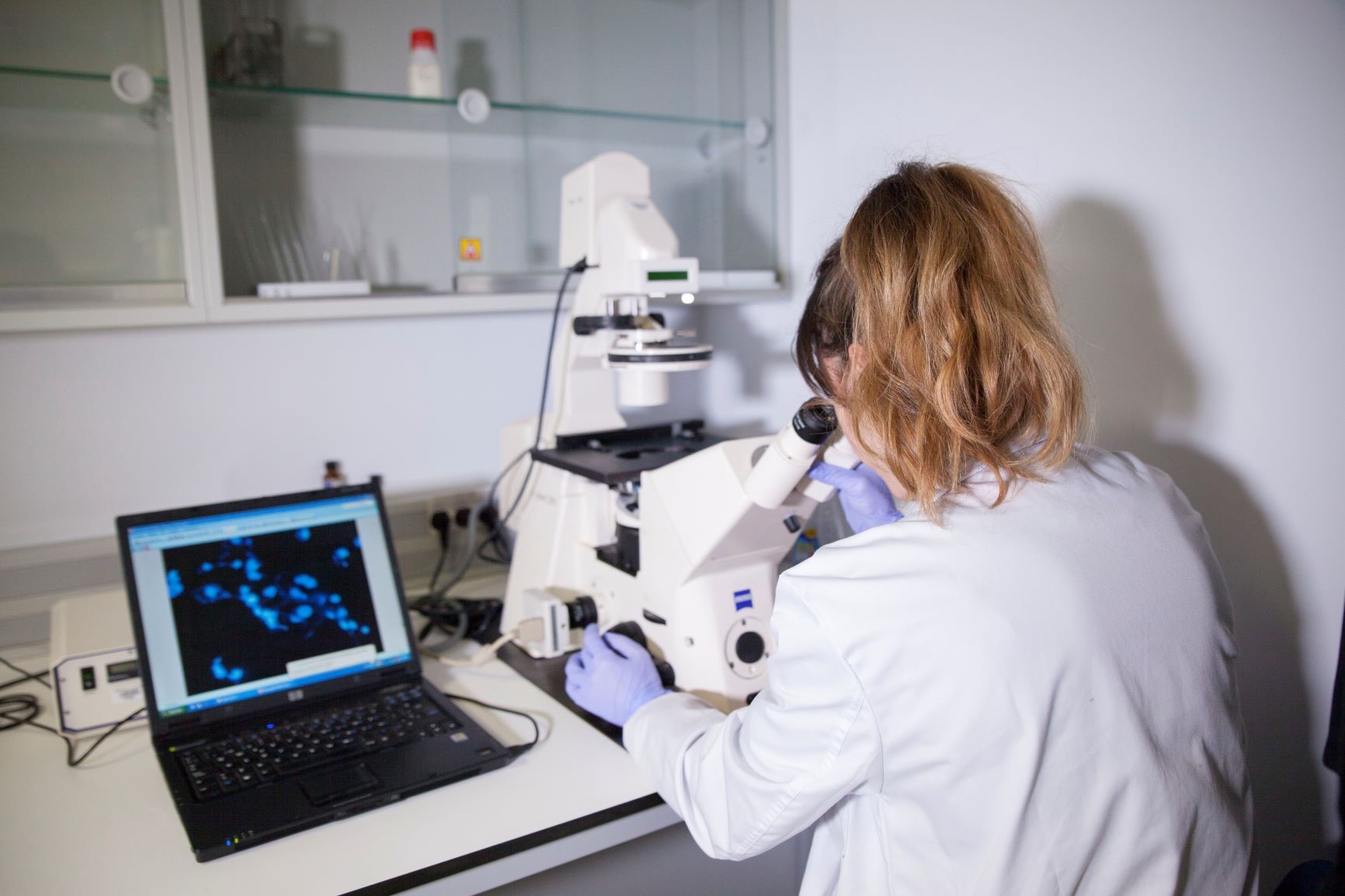CRIS PROJECT: CAR-T IN OVARIAN CANCER
CRIS OUT-BACK PROGRAMME 2021 Researcher: Diego Benito Institution: Home: Universidad de Navarra, SPAIN – HOST: Massachusetts General Hospital Cancer Center (USA) Ovarian cancer has a 5-year survival rate of just 40%, due to its late diagnosis and aggressiveness. Although immunotherapy is showing good results in other types of tumours, in ovarian cancer the results are
CRIS PROJECT: IMMUNOTHERAPY IN MELANOMA
CRIS OUT-BACK PROGRAMME 2021 Researcher: Rebeca González Institution:Home: INSTITUTO DE NEUROCIENCIAS CSIC-UMH, SPAIN – Host: Centre Méditerranéen de médecine moléculaire, France Melanoma is a very aggressive type of skin cancer experienced by more than 6000 people a year in Spain. It is the most aggressive skin tumour and most often metastasises. If metastasis occurs, in
CRIS PROJECT: METASTASIS AND CACHEXIA
CRIS POST-DOC TALENT PROGRAMME 2021 Researcher: Dra. Blanca Majem Cavaller Institution:Institut de Recerca Biomèdica (IRB), Barcelona Introduction: Tumour metastases represent the greatest challenge in cancer research. More than 90% of tumour deaths occur because of the consequences of metastases, yet a great deal is still unknown about the mechanisms that produce metastases and how to
CRIS PROJECT: PREDISPOSITION TO BOWEL CANCER
CRIS POST-DOC TALENT PROGRAMME 2021 Researcher: Dra. Ceres Fernández Rozadilla Institution:Instituto de Investigación Sanitaria de Santiago de Compostela Colon or bowel cancer is the most diagnosed form of cancer in Spain (43,500 cases per year) and the second highest cause of death from cancer (16,500 people a year) after lung cancer. It is a complex
CRIS PROJECT: RESISTANCE IN PROSTATE CANCER
CRIS EXCELLENCE PROGRAMME 2021 Researcher: Dr. Arkaitz Carracedo Institution:CIC Biogune, Bilbao Introduction: Prostate cancer is the most prevalent form of cancer in men, causing more than 80,000 deaths a year in the European Union. Although most respond to treatments, these tumours have certain characteristics that make them a real medical challenge. On the one hand,
CRIS PROJECT: HORMONE-RECEPTOR POSITIVE BREAST CANCER
CRIS EXCELLENCE PROGRAMME 2021 Researcher: Dr. Aleix Prat Institution: Hospital Clínic, Barcelona Introduction: Breast cancer remains one of the biggest challenges in cancer research. 1 out of 8 women will develop breast cancer at some time in their lives. Breast tumours are generally classified according to whether or not the tumour cells possess certain molecules
CRIS PROJECT: IMMUNOTHERAPY IN PROSTATE CANCER
CRIS CLINICAL TALENT PROGRAMME 2021 Researcher: Dra. Nuria Romero Laorden Institution: Hospital de La Princesa, Madrid Introduction: We tend to see prostate cancer as relatively benign and curable, but approximately 10% of patients have metastases and do not respond to usual treatments. These patients have a life expectancy of less than 3 years, and account
CRIS PROJECT: FOLLICULAR LYMPHOMA
CRIS CLINICAL TALENT PROGRAMME 2021 Researcher: Dra. Ana Jiménez Ubieto Institution: Hospital Universitario 12 de octubre, Madrid Introduction: Follicular lymphoma is one of the most common types of blood cancer. Although it tends to be relatively non-aggressive, it still currently has no cure. In addition, a significant number of patients (between 15% and 20%) relapse
Multiple Myeloma Project (ICR)
Project: Resistance to treatments for Multiple Myeloma Institution: Institute of Cancer Research, London (UK) Researcher: Dr. Charlotte Pawlyn What is this project about? This research project aims to define a profile of multiple myeloma patients likely to develop resistance to myeloma treatments, study reasons why such resistance occurs and develop useful therapeutic strategies to overcome this. What is multiple myeloma? Multiple myeloma is a cancer that begins in the bone marrow in a type
CAR T-Cell Immunotherapy in thoracic tumours
Principal Investigator: Dr Astero Klampatsa Centre:Institute of Cancer Research, London (United Kingdom) Background: Mesothelioma is a type of thoracic tumour that occurs in the mesothelium. This is the cell layer that covers several of the organs contained in the thoracic cavity. We now know that one of its main causes is exposure to asbestos (also called amianthus). Although asbestos now appears to be a thing of the past, a large number of people
CRIS Immunotherapy in Head and Neck Cancer Project
Principal Investigator: Dr. Alan Melcher, Prof. Kevin Harrington Centre: Institute of Cancer Research (ICR) and The Royal Marsden Hospital, London Introduction: Head and neck cancer is a very common type of tumour (550,000 cases a year worldwide and 12,238 in the UK). Despite being common, mortality rates are still high (380,000 deaths a year worldwide and more than 4,000 in the
CRIS Multiple Myeloma project
Researcher: Dr. Bruno Paiva Center: : Clínica Universidad de Navarra Introduction: Multiple myeloma is the second most common blood cancer. It has extremely high mortality rates and there is still no cure for it. Myeloma, like other blood diseases, goes through a benign stage called Monoclonal Gammopathy of Undetermined Significance (MGUS) which, in most cases, does not progress to serious disease. However,
CRIS Breast Cancer metastasis project
Researcher: Dra. María Casanova Center: CNIO, Madrid Introduction: At present, there are no adequate treatments for triple negative breast cancer, an extremely aggressive cancer with high mortality rates. One of the most significant complications of this cancer is that 60% of patients develop metastases, the causes of which remain largely unknown. Advances in understanding the immune system have enabled the following to be identified: a highly varied and heterogeneous group of tumour cells (called myeloid cells), which occasionally behave abnormally, stop rejection of the tumour and may have a crucial function in the
CRIS Acute myeloid Leukaemia project
Researcher: Dr. Alejo Rodríguez-Fraticelli Center: : Institut de Recerca Biològica IRB, Barcelona Introduction: One in 50-100 people will develop leukaemia within their lifetime. Although cure rates are high for many types of leukaemia, there is no effective treatment for Acute Myeloid Leukaemia (AML). Despite decades of research, no treatment is ultimately effective. One cause of this is that, as they become treatment-resistant, these tumours
CRIS Prostate cancer metastasis project
Researcher: Dra. Isabel Mendizábal Center: CIC bioGUNE, Bilbao Introduction Advanced prostate cancer is the second leading cause of cancer mortality in males. Generally, the cause of death in these patients is the onset of metastases, against which treatments tend not to be very effective. Understanding the mechanisms of metastasis, however, is complex. The tumours are not homogeneous, not all tumour cells are
CRIS Radioimmunotherapy project
Researcher: Dra. María Esperanza Rodríguez Ruiz Center: Clinica Universidad de Navarra Introduction: There are around 35,100 lung cancer deaths in the UK every year, that’s 96 every day. Lung cancer is the most common cause of cancer death in the UK, accounting for 21% of all cancer deaths. Despite advances in the treatment of
CRIS Poject on prostate cancer evolution
Principal Researcher Dr. Joaquin Mateo Center: Vall d’Hebron Institute of Oncology (VHIO) Introduction: Despite advances in prostate cancer treatment, metastatic prostate cancer remains a fatal disease. Over the last few years, huge work has gone into discovering therapies directed specifically at some targets in these cells. There are, however, few available options. One such option is PARP inhibitors. It has recently been discovered that numerous patients with metastatic prostate cancer have mutations in the different mechanisms that repair the DNA. This causes the cells to accumulate more mutations, which they cannot repair and they increasingly become
Immunotherapy imaging project
Researcher: Dra. Raquel Pérez López Center: : Vall d’Hebron Institute of Oncology, Barcelona Introduction: Cancer immunotherapy has brought about a radical change in the way in which many types of cancer are treated. However, although has fantastic results in some patients, in a significant percentage such therapies are ineffective. Knowing which patients have a greater or lesser chance of responding is one of the biggest challenges of modern medicine: it
CRIS Prostate cancer project
CRIS PROGRAMME OF EXCELLENCE 2019 Researcher: Dr. David Olmos Center: : Centro Nacional de Investigaciones Oncológicas, Madrid Introduction: In developed countries, prostate cancer is the most commonly occurring tumour in males. Generally, most patients are diagnosed in the early stages when the tumour is still localized and are usually cured. However, in 5-10% of patients, diagnosis occurs when the tumour has
Project CRIS colon cancer
Principal Researcher: Dra. Clara Montagut Viladot Center: Hospital del Mar Investigacions Mèdiques Biography: Clara Montagut graduated from the Autonomous University of Barcelona with a degree in Medicine and Surgery and trained in medical oncology at the Hospital Clínic. She specialized in translational cancer research, specifically in biomarkers and mechanisms of resistance to biological drugs at the Hospital Clínic itself and at the Massachusetts General Hospital Cancer Center (Harvard
H12O Immuno-Oncology Unit
Project Directores: Dr. Luis Paz-Ares, Dr. Luis Álvarez-Vallina. Centres: Hospital Universitario 12 de Octubre de Madrid, Centro Nacional de Investigaciones Oncológicas (CNIO). Introduction During the last few years, the conception of how cancer develops has changed radically. Tumours are no longer considered isolated entities that grow in isolation from their environment, and it has been
CRIS Breast Cancer Research Unit
Principal Researcher: Dr. Miguel Ángel Quintela Center: CNIO, Madrid Introduction: Breast cancer is the most common cancer in the UK. Around 55,200 people are diagnosed with breast cancer every year in the UK. That is around 150 people a day. 15 out of 100 (15%) of all newly diagnosed cancers in the UK are breast cancer. It is
CRIS Project for Targeted Therapies in Metastatic Colon Cancer
Principal Investigator: Dra. Mª Elena Élez Centre: Vall d’Hebrón Institute of Oncology (Barcelona) Introduction: There are around 42,300 new bowel cancer cases in the UK every year, that’s more than 110 every day. Bowel cancer is the 4th most common cancer in the UK, accounting for 11% of all new cancer cases. It is also the 2nd
CRIS Unit for New Experimental Therapies:
Introduction: The CRIS Unit comprises three facilities, which have been set up to undertake the three most important phases in the development of new therapies, primarily: Translational Oncology Laboratory: studies are carried out in this laboratory to identify new targets and therapeutic strategies. New Compound Screening Laboratory: once new therapeutic strategies have been designed, the process of testing a large number of drugs or compounds is started. Using high-performance techniques, those with the greatest
CRIS Bladder Cancer Project
Principal Investigator: Dr. Enrique Grande Centre: Fundación MD Andersen Center, Madrid Introduction: Bladder cancer is a relatively common tumour, with an estimated 10,233 new cases a year in the UK. It is more common with ageing, with 70% of cases occurring in patients over the age of 65 years. It is a type of cancer that is often
CRIS Pancreatic project with Dr. Barbacid
principal investigator: Dr. Mariano Barbacid Center: Centro Nacional de Investigaciones Oncológicas (CNIO) Context: Pancreatic ductal adenocarcinoma accounts for 90% of malignant pancreatic tumours. It poses a massive medical challenge for a variety of reasons. Firstly, it is one of the most aggressive and fastest spreading tumours from which a staggering 95% of patients do not survive. Secondly, it is generally diagnosed late and, as there are also no effective treatments for it, mortality rates are extremely high. Pancreatic cancer is the 10th most common cancer
CRIS Project in ovarian cancer
One of the most promising avenues of research in the quest for new ovarian cancer treatments is the manipulation of the immune system, namely Immunotherapy. The project’s current focus is on various aspects of this type of therapy. Several projects are currently being developed that focus on the immune system as a gateway to better therapies.
Breast Cancer Project
Principal Investigators: Dr Alberto Ocaña, Dr Atanasio Pandiella Centres: CHUA (University Hospital Complex of Albacete) – Albacete and CIC (Cancer Research Centre) – Salamanca Breast cancer is the most common cancer in the UK. Around 55,200 people are diagnosed with breast cancer every year in the UK. That is around 150 people a day. 15 out of 100 (15%)
Prostate Cancer Project
Principal Researcher: Dr David Olmos and Dr Elena Castro. Centres: Spanish National Cancer Research Centre (CNIO), IBIMA (Biomedical Research Institute of Malaga). Background: In the UK, about 1 in 8 men will be diagnosed with prostate cancer in their lifetime. Prostate cancer is the most common cancer in men. More than 47,500 men are diagnosed with
CRIS Unit for Translational Research and Clinical Trials in Haematology
Researcher leading the project: Dr. Joaquín Martínez Centres developing the research: 12 de Octubre University Hospital, Madrid, Spanish National Cancer Research Centre (CNIO). Context Haematological, or blood cell tumours represent largely incurable cancers today. Blood cancer is the fifth most common cancer in the UK, with over 40,000 people being diagnosed with it every year. There are about

